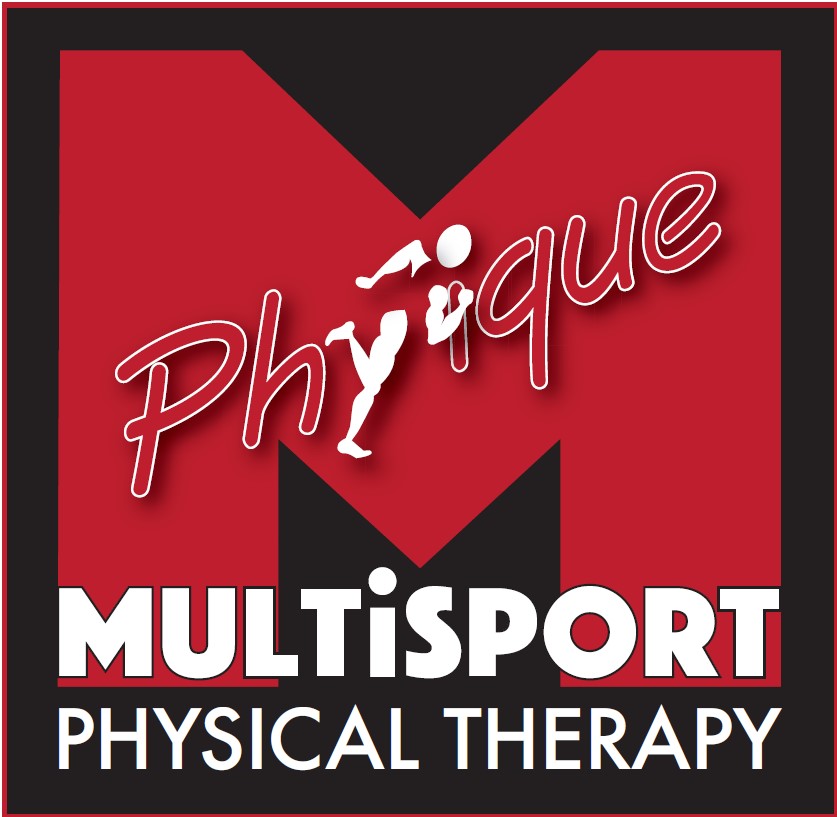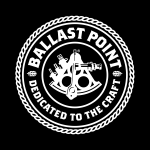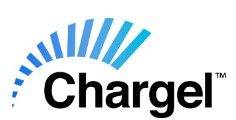John Chisholm

Join me as I talk triathlon with Tri Club member John Chisholm. John has done every version of Ironman Coeur d’Alene since it’s inception. For a guy who was a triathlon student a short time ago, John has a lot of experience to share that the typical triathlete can leverage.
CZ: What initially prompted you to start racing triathlons?
JC: I became involved in triathlon by accident-literally. I seem to have always done things in three's. In high school, I played football, basketball and volleyball for 4 years. Then when I left for college, I switched to surfing, beer, and girls. After I finished my education and training, I moved to Rancho Penasquitos and started coaching 3 sports at Mt Carmel High School. It was during this time that I started running for fitness, and after a few years I was running a marathon or two each year, in addition to playing a lot of pickup basketball. All that running and basketball started taking it's toll on my Achilles tendons, and so one day at basketball practice I was demonstrating a backcut and, BAM, I was on the ground with a ruptured Achilles. 2 years and 6 major surgeries later, I was told by my doctors that they couldn't do any more for me and that my choices were (1) ankle joint fusion or (2) limp with a cane. Obviously my basketball days were over. Running was out of the question.
I am a true exercise junkie and so while I was recovering from my surgeries I had a plastic cast made for me and I started lap swimming. I would use my crutches to get to the edge of the pool, jump in, swim, and then climb out and mount my crutches again for the rest of the day. I hated swimming more than having needles stuck into my eyeballs, but it was all I could do.
After the doctors pronounced me permanently broken, I decided to try to try some bike riding to get some strength back into my ankle. I dusted off my old steel frame bike and started riding. Now at this point I had never swam a lap or cycled a mile in my life, and to this day I would rather have hot lead poured into my ears than go on a 6 hour bike ride, but it was all I could do at the time, and if I don't exercise I get cranky.
As my leg got stronger, I found I was able to run, kind of, more like a funny waddle, for a mile or two, and I was already swimming and biking, so after watching the Ironman on TV I signed up for my first race. The rest is history.
CZ: Tell me about your first triathlon and what hav you learned not to do while training or racing triathlons?
JC: It was the SD International, sometime in the late '90's. I just showed up race day without knowing a thing about triathlon. I should have known things were not going to go well right at the swim start. I had decided that since I wasn't a good swimmer I was going to get an edge on the competition by NOT wearing a wetsuit. My experience with surfing was that my wetsuit would fill with water and I couldn't swim very well. So I figured I would endure the cold and get an edge. It just so happened that year was a very cold water year, and at race time the bay was about 62 degrees. As I walked to the start point, I became aware that people were staring at me, and it wasn't just because I looked so good in my Speedo. I looked around and realized that out of maybe 1000 athletes, myself and this other girl were the ONLY ones without suits. Cold and slow are the words to best describe my swim.
I thought I could get another edge by drafting on the bike. I had no idea it was illegal. By the end of the bike, I had made many new enemies.
I got quad cramps halfway through the run. It was a really bad day. But I have to admit that despite all those mistakes, I was so proud to have finished that I started racing regularly and haven't stopped.
CZ: What is your favorite part of being a Tri Club member?
JC: Learning how to train and race smarter without having to endure another disaster like my first event. I became a member soon after that disastrous first race. As soon as I became a Club member, I stopped trying to figure things out on my own, and started asking questions and listening. You just can't help but pick up all kinds of knowledge by just hanging around other triathletes and watching what they do.
Being in the Club also exposed me to all different kinds of athletes - fast, driven Kona qualifiers as well as more laid back, middle of the packers. I think it is important early on to decide what you want to get out of this sport, and to be honest with yourself about your goals and abilities. After my injury, it was apparent that I was never going to be fast again. Even if I quit my job, abandoned my kids and trained full time, I was never going to be fast. I just don't have the genetic makeup and mechanical structure to be a Kona guy. Once I accepted this fact, and also accepted that as a single dad my priorities were (1) my children and (2) my career, it has been easy to be content with being a middle of the pack age grouper. And although the really fast guys and gals in the Club have a pretty high profile, I have found a lot of others members who are in the same situation as me, and that provides me with a lot of support, especially when the demands of family and job and training are at war.
CZ: Which Ironman races have you done?
JC: I have done IM Coeur d' Alene all three years since the inaugural event in 2003. I wanted to try an Ironman for several years, but I knew that with the demands of family and work, I would struggle to find enough time to train. I did try in 2001 and 2002 to enter an event, but by the time I had logged enough training miles to convince me I could finish, the events would be closed. So in 2003 I took the plunge and signed up 10 months out.
It cracks me up when I hear guys say " my goal is to finish" their first Ironman, and then they go out and crank out an 11:15. Those guys could break their leg during the run, go to the hospital and get it set, and still have time to finish on crutches under 17 hours.
The athletes I can relate to are the ones who really have to struggle to find the time to get in a 6-hour ride or a long brick workout during training. I know that for my first Ironman, it was a real possibility that I would get so fatigued that I might not be able to finish. I just refused to make the personal and professional sacrifices that are necessary to train properly for an Ironman event. The thing I discovered is that it is indeed possible to finish an Ironman without having all that training under your belt. I know I was absolutely ecstatic to finish that first race in 13:49. I know this doesn't sound like a good time to some, but to those of us who really are worried about finishing, it was the highlight of my athletic career.
Injuries caused me to train even less for 2004 IMCDA, and I had another brutal run (limp) and ended up with a time over 14 hours.
Last year, I felt like I finally went into the race with some good mileage under my belt, and I PR'd all 3 legs to finish in 13:18. My goal for IM is to someday finish in the 12's, and I might have done that last year if I hadn't wasted so much time in transition and the porta-potties. Live and learn.
CZ: What is your racing plan for 2006 and beyond?
JC: I'm doing IM CDA again this year - I just love that race. I always start each season with my target race, and then work backwards and choose my races to fit my training needs. So I will do California 70.3 in March and Wildflower in May and use them as hard training days. I really believe in doing a lot of races while training for an IM, especially the Club races. It really breaks up the monotony of those endless miles and makes it fun.
CZ: What has been your attraction to Ironman Coeur d’Alene?
JC: Well, of course it was my first IM and a guy always remembers his first time. Besides, it is just a first class event. The course is very scenic, the support is tremendous, but the best thing is the town of Couer d'Alene. It is just such a great town with great people who really get behind the race and I always feel like a celebrity walking around town before the race. I do wish I had tried other venues like Canada or Wisconsin, but I really only want to train for one IM distance race a year and I can't say no to CDA.
CZ: What are the key ingredients to a successful Ironman?
JC: It depends on your goal. If you want to break 11 hours or qualify for Kona, your preparation is going to be much different from someone who just wants to finish upright and stay out of the medical tent. I have opinions about everything, and strong ones about triathlon. One of those opinions is that it doesn't really matter what your plan is for training and racing an IM, it's just important to have one. For all of my IM races I have used your IM training plans which are on the website. The plan is simple and makes sense and fits my lifestyle - I can usually manage to get in most of the workouts and not sacrifice family or work time. I especially like alternating the long weeks with brick weeks- it just feels right. Another opinion of mine is that the best thing a newbie at IM distance can do is get themselves a mentor - someone who has knowledge and experience at that distance and is willing to share it with you. And I know that most of the Club members are always willing to share their experience with me. I must have called you at home ten or twenty times that first year with every question imaginable, and that information did so much to relieve my anxiety as race day approached.
CZ: Who is your favorite professional triathlete?
JC: I don't think I have a favorite professional - although I do think Lori Bowden is smoking hot. The guys I look up to in triathlon are the ones who have helped me accomplish a goal I never thought I'd reach. Guys like you, Jim McCann, Dean Rosenberg and Steve Tally and everyone who gives back to the community.
Although he is no longer here in California, Dave Schneider was a very active club member and a Kona lurcker. He and I rented a house together for my first Ironman in 2003 and it was the best thing that could have happened. He was an IM veteran and a very smart guy and so I just spent the entire week before the race following him around and doing what he did. He was my mentor and he saved me from making a lot of typical first timer mistakes. I really recommend this approach to IM newcomers. Try to hang with a winner. Think of the Ironman venue like a bad neighborhood - don't go there alone.
CZ: Most Tri Club members know you as the foot doctor guy. What types of triathletes are your best patients? What personality traits give a person the best chance to heal the fastest?
JC: I have yet to meet one who is a good patient! My staff just cringes every time one walks in! The qualities that make someone a good patient, such as patience and the ability to take and follow orders, are not usually characteristic of triathletes, or athletes in general. The exact qualities that make them good athletes - stubborn determination and ability to endure pain - often make them unable or unwilling to take proper care of their injuries. Although once they do listen to what you want them to do, they are very motivated and will do everything that's asked of them - twice. Plus, most triathletes are very knowledgable about their bodies and general principles of injury prevention and treatment, so by the time one of them gets to my office, they have already tried icing and taken ibuprofen and are using an orthotic, ect. I don't get any of the easy problems, only the hard ones.
CZ: What is your title and what is the biggest problem you run into with patients?
JC: My official title is John Chisholm, DPM (Doctor of Podiatric Medicine). I am a sports podiatrist. My patients call me Dr. Chisholm. My friends call me John. When I'm doing a race or attending a Club event, I don't really see myself as a doctor. That's what I do, it's not who I am. Of course I am always getting foot and ankle questions from other members. I try to treat all these questions with the respect they deserve, but I also am careful not to do curbside diagnosis and treatment. The biggest problem I run into is that most athletes think they know what is wrong with them, and start treating themselves without really knowing what's wrong. Usually this works, but when it doesn't, it has the potential to do real harm or at the least postpone proper treatment. That's why I respond to most questions about how to treat an injury with " first get an accurate diagnosis, then the proper treatment will become obvious". Everyone who reads the email postings has heard this from me.
CZ: John, thank you for sharing your story. You are a valuable Tri Club member and we appreciate all that you have given back!
(The best way to reach John if you have questions is to email him at dr_triguy@yahoo.com ).








